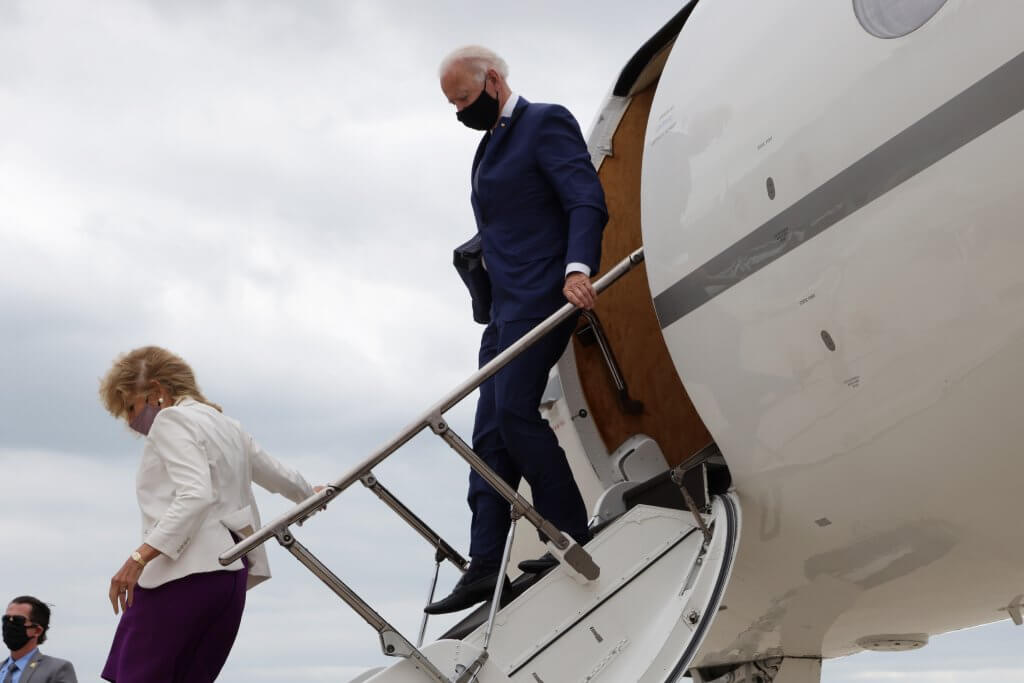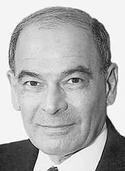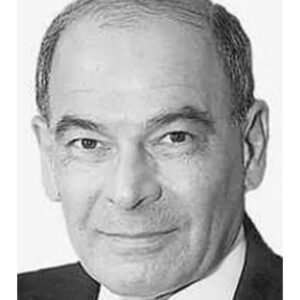
The Roman Catholic Church is engaged in a holy war over Joe Biden’s candidacy for president.
The breach is more a matter of individual conscience versus church dogma than any widespread schism that would cleave the world’s largest precinct organization, with 223,129 parishes worldwide and more than 17,000 here in America.
The issue is not Biden himself, but that durable deal-breaker, abortion, a matter of life and death to some, and a question of personal choice for others.
Biden’s position on abortion has evolved over his more than 40 years in public office. He’s voted both for and against the Hyde Amendment, which prohibits the use of federal funds for abortion. He supported a referendum of the states to repeal Roe v. Wade, and he now supports Roe v. Wade as the law of the land.
Many recent polls show that a majority of Catholics ignore Church teaching and believe that abortion, to one degree or another, should be a matter of individual choice and available to those who want it. At the same time, polls show that church attendance has declined significantly as have the number of people who identify generally with religious beliefs.

Frank A. DeFilippo
And now the death of Justice Ruth Bader Ginsburg has further muddled the issue and the presidential race. Buried under the layers of opposition to abortion are the dual reasons for the tangle with Biden’s candidacy and possible presidency – the U.S. Supreme Court and the U.S. Senate. With the death of Ginsburg, President Trump probably gets to nominate at least one more justice, and if confirmed would tilt the court conservative for decades to come.
Democrats need to flip only four seats to assume control of the Senate. Because of the number of seats in play, Democrats have a good chance of winning the Senate. Five of the living eight Supreme Court justices are Catholic. Trump has already released a list of 20 prospective nominees to the court, although one, Sen. Ted Cruz (R-Texas), has removed himself.
Religion and politics are a toxic mix, but some in the transcendent battle see it no other way. Thus, the organization, “Catholic Vote,” has launched a $9.7 million anti-Biden campaign directed at swing voters to “expose Joe Biden’s anti-Catholic record and policy agenda.”
Sound like an echo bouncing off the walls of the White House?
As a counterpoint to such internecine sentiment, the Biden campaign has released a list of prominent Catholics who support Biden for president. Heading the list is Sen. Dick Durbin, of Illinois, second in command of the Senate Democrats.
And yet another committee, “Catholics for Biden,” has been formed to generate grass-roots support for Biden’s candidacy. The committee is the brainchild of Mark Shriver and Tim Shriver, sons of Sargent and Eunice Kennedy Shriver, of the Kennedy clan. Mark Shriver served two terms in the Maryland House of Delegates.
There are even competing, if not contradictory, sentiments among the different echelons of Catholic clergy over Biden’s candidacy. A number of priests, for example, have spoken out against Biden, saying, “no faithful Catholic can vote for Joe Biden.”
But Father James J. Martin, a Jesuit priest and Vatican consultant to Pope Francis, has urged fellow Catholics and clergy to stop saying a vote for Biden is a “mortal sin.”
Martin, instead, has encouraged them to follow the advice of the U.S. Conference of Catholic Bishops, which suggests that voting is an individual decision and a matter of conscience.
“We bishops,” the prelates’ statement said, “do not intend to tell Catholics for whom or against whom to vote.”
Cardinal Joseph Tobin, archbishop of Newark, N.J., put it more bluntly. “I think that a person in good conscience could vote for Mr. Biden,” Tobin told the National Catholic Reporter. “I, frankly, in my own way of thinking have a more difficult time with the other option.”
As for the Vatican itself, the signals originating from Rome are fuzzy and far from direct but appear to be hinting that what’s at stake beyond abortion is the other good stuff that Biden will bring to the U.S. presidency and the world and are in line with Pope Francis’ priorities — the Green New Deal, rejoining the Paris Climate Accord, reversing Trump’s anti-immigration policies, expanding health care, fighting discrimination and poverty.
Trump started the war of words over religion by trying to tie Biden to the extreme left flank of the Democratic Party while attempting to motivate his evangelical base. Of the estimated 51 million Catholics in the U.S., about 20% cross over and also identify themselves as evangelicals.
Trump, twice divorced, further debased religion by posing in front of St. John’s Church, across from the White House, holding a Bible aloft for a photo-op after armed troops dispersed protesters to clear a path for Trump across Lafayette Square, using tear gas and pepper spray.
Trump has said, in his usual scrambled syntax, that Biden wants to “Take away your guns, destroy your Second Amendment, no religion, no anything. Hurt the Bible, hurt God. He’s against God, he’s against guns.” Try parsing that.
To which Biden replied: “Like so many people, my faith has been the bedrock foundation of my life. . .My faith has been a guiding light for me and a constant reminder of the fundamental dignity and humanity that God has bestowed upon all of us.” Did we mention that Biden is Catholic?
Abortion has long been a settled issue in Maryland. Following the Roe v. Wade ruling in 1973, the Maryland General Assembly passed a bill in 1974 that legalized abortion. It was vetoed by Gov. Marvin Mandel (D) for legal insufficiency with the promise to adopt a sustainable law the following year (after he was safely reelected in 1974), which he did.
Maryland’s abortion law has survived numerous challenges over the nearly half century, including a voter referendum in 1992. Two Republican governors, Robert L. Ehrlich Jr. and the incumbent, Larry Hogan, refused to engage in the abortion debate to placate conservative demands, saying the issue is settled business in Maryland.
And most recently, the General Assembly established protections for Maryland’s abortion law against any action the Supreme Court might take to either weaken or repeal Roe v. Wade. There was no indication that the Supreme Court under Chief Justice John Roberts was in any hurry to act on the issue. That could change in a hurry.
Maryland, as every catechized Catholic knows, has always been a heavily Catholic state. The estimated 51 million Catholics in America make up about 25 percent of the population a small chunk of the 1.3 billion Catholics in the world.
Maryland, as a state, traverses two archdioceses and one diocese, with each of the two archdioceses populated by roughly 500,000 Catholics – the Archdiocese of Baltimore, the Archdiocese of Washington and the Diocese of Wilmington, Del., which brackets the Eastern Shore.
In the 1950s and early 1960s, for example, being Catholic was almost a rite of passage into Baltimore politics and community life. Membership in the Holy Name Society, a long-since vanished men’s organization, was a necessary calling card. And house sales were identified in real estate ads by the parish they were in.
Following the 1963 Supreme Court decision that banned prayer in public schools, Francis “Bill” Burch, then state insurance commissioner and an unabashed Catholic, founded the Constitutional Prayer Foundation. Burch claimed to have a list of 65,000 members, which he used as a political threat to run for public office and which reinforced his appointment as state insurance commissioner and eventually his election as attorney general when an open seat occurred in 1966.
The school prayer issue had special salience in Maryland. Madalyn Murray O’Hair was the Maryland atheist and mother of a public school student, William, whose exposure to Bible reading before class prompted the successful case to end the practice in public schools.
Burch, a Democrat, took his list to San Francisco in 1964 and testified in favor of restoring school prayer before the platform committee at the Republican National Convention that nominated Barry Goldwater for president, which landed him in hot water with Democrats. But Burch thereafter used his list of names and his Catholicism as a constant threat to run for governor — which he finally did, unsuccessfully, in 1978.
The current display of trickle-down faith is far different from the religious test that John F. Kennedy faced in his 1960 campaign for president. Kennedy had to convince leaders of different Protestant denominations that he wouldn’t take orders from the Pope, or, for that matter, tell the Pope what to do.
Biden, however, is being tested from within. He is being challenged over degrees of faith and an overlap of Church teaching with social beliefs that are identified with the Democratic Party – and to a large extent, with Pope Francis’ personal beliefs.
The Catholic Church is big and broad enough so that no one group is totally awash in holy water.




 Creative Commons Attribution
Creative Commons Attribution